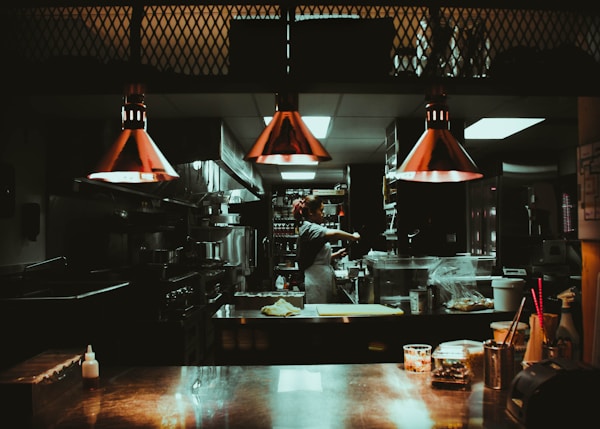Have you dreamt of opening your own fine dining establishment? The world of refined culinary experiences has taken off in recent years, with more people seeking unique flavors and luxury dining restaurants. Starting your own business can be highly rewarding but it also requires a lot of hard work, research, and planning to get it right. To help guide you through the process and increase your chances of success, we’ve compiled a list of key considerations to keep in mind when embarking on this exciting journey. In this article, we’ll delve into three essential aspects of starting a fine dining establishment.
Investing in High-Quality Ingredients and Equipment

Quality is paramount in the world of fine dining, and this includes the ingredients you use and the equipment you invest in. Make the effort to source only the finest, freshest ingredients for your dishes – consider working with local, organic producers to ensure premium quality while supporting your community. A well-maintained relationship with your suppliers can lead to partnership opportunities and exclusive access to seasonal or unique offerings.
Equally important, invest in reliable, top-of-the-line commercial cooking equipment from Antunes to ensure your kitchen can handle the demands of your menu. High-quality equipment will improve efficiency and productivity and can also save you money in the long run by reducing maintenance and repair costs. It allows chefs to work with precision, ensuring that dishes are cooked to perfection every time. From industrial-grade ovens to commercial-grade refrigerators, equipment is a sound investment for any restaurant looking to deliver consistent, high-quality food.
Moreover, keep in mind that an excellent fine dining experience includes exceptional service. Invest in hiring and training a professional, knowledgeable, and attentive staff. This will not only elevate the customer experience but can also earmark your establishment as a premier dining destination.
Establishing a Robust Marketing Strategy

As with any business, a strong marketing strategy is necessary for your fine dining establishment. Before launching your restaurant, ensure that you have a solid grasp of your target market and your brand identity. Start by building an online presence, including a professional, easy-to-navigate website and active social media profiles that showcase your restaurant’s concept, menu, and ambiance.
Leverage local connections and media opportunities to generate buzz about your restaurant. Partner with food festivals and events, host influencer tasting sessions, and reach out to local journalists to secure coverage. Word-of-mouth recommendations are invaluable in the food industry, so fostering positive customer experiences and garnering positive reviews can significantly impact your business’s success.
Once your establishment is up and running, continually evaluate your marketing strategy’s effectiveness and adapt as needed. Stay attuned to industry trends and competitive analyses to identify new opportunities and ensure that your restaurant remains relevant and attractive to your target audience.
Setting Realistic Financial Projections and Goals

Opening and managing a successful fine dining establishment requires a realistic financial plan too. Begin by calculating the costs of starting and operating your restaurant, including rent, staffing, food and drink inventory, and equipment purchases. Include a contingency fund for unexpected expenses and a plan for generating revenue in your initial months of operation. Ensure that you’ve secured funding through personal savings, loans, or investor connections to cover your projected costs.
The fine dining business can be competitive, but with careful planning and attention to detail, it’s possible to make a name for oneself in the industry. Continually reassess your financial goals, examining ways to reduce overhead costs, streamline operations, and maximize profits. Persistence and patience are required, as the journey to success may be gradual in a saturated market. As your clientele fluctuates over time, be willing to adapt and grow with them.
Overall, starting your own fine dining establishment requires careful planning, dedication, and meticulous execution. By focusing on investing in quality ingredients and equipment, establishing a robust marketing strategy, and setting realistic financial projections and goals, you’ll be well on your way to launching your dream restaurant. Continuously improving and expanding upon the unique experiences you offer will keep your establishment thriving for years to come. Follow the tips in this article and soon you’ll own your own thriving restaurant.

